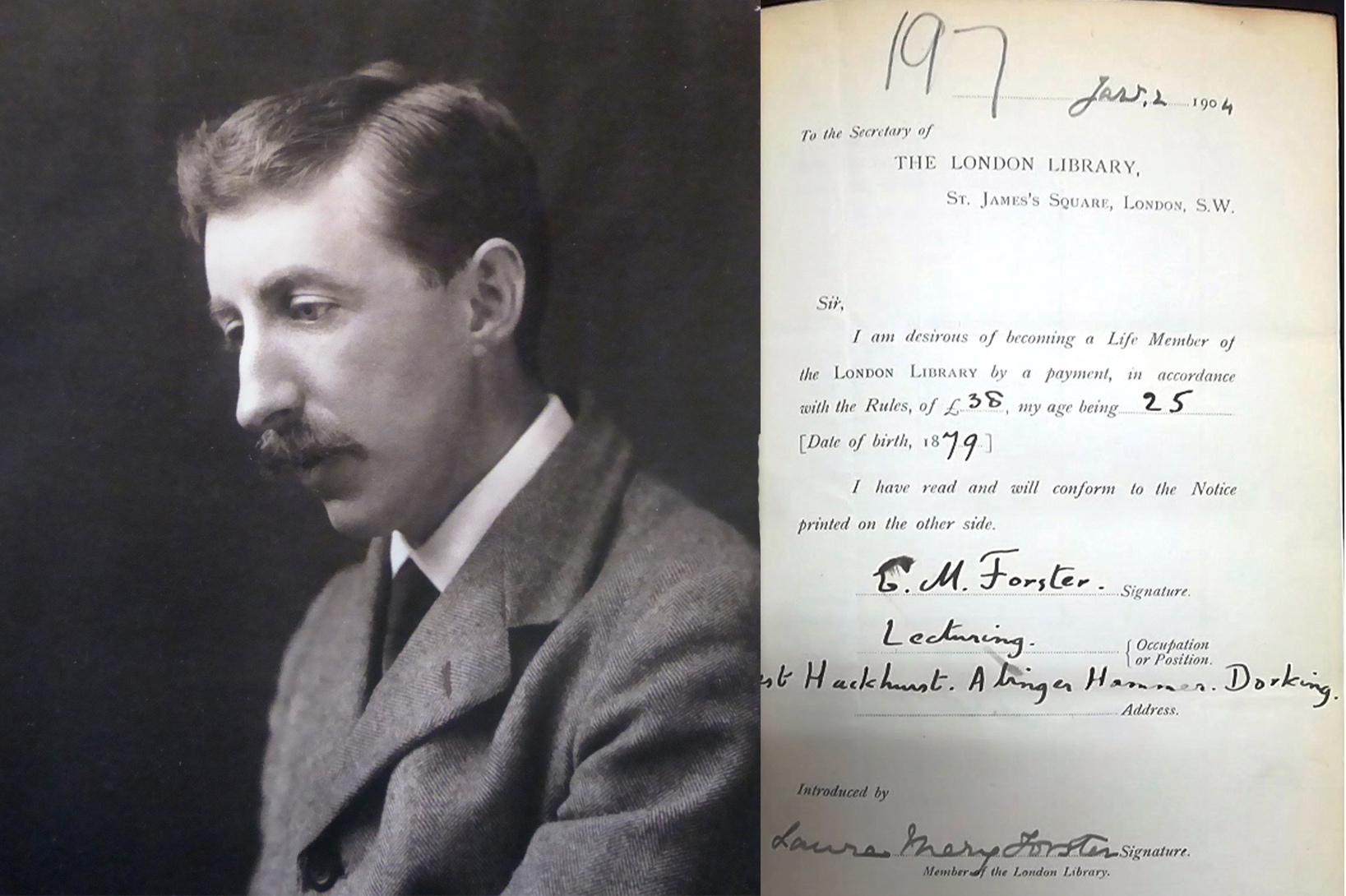
This year marks the 50th anniversary of EM Forster who died on 7th June 1970 aged 91.
Forster was a London Library member for 64 years, having been given life membership by his aunt in 1906, the year after the publication of his first novel Where Angels Fear to Tread. Three novels followed in short order - The Longest Journey (1907), A Room with a View (1908) and Howards End (1910), establishing Forster, still in his early thirties, as an author of international renown. His greatest success came with A Passage to India - the last novel he was to publish in his lifetime - which appeared in 1924 (a fifth novel, Maurice, was published posthumously in 1971).
Although his novel-writing career finished remarkably early, his reputation as a literary figure was enormous. A frequent commentator, essayist, short story writer and broadcaster, he was one of the most important literary names of his day. He wrote the libretto for Benjamin Britten’s Billy Budd and was nominated for the Nobel Prize in Literature on no fewer than 16 occasions.
He was also a highly involved member of The London Library. We see him actively bringing new members to the Library - in 1920, he nominated Siegfried Sassoon for Library membership. In 1943 it was the turn of actor Robert Donat, best known as the star of the 1939 film Goodbye Mr Chips. Forster was a Committee Member of the Library throughout the war and in 1961 became Vice-President. He also had a significant part to play in saving the Library from bankruptcy, donating the manuscript of A Passage to India to raise funds at auction in 1960. It sold for £6,500 - the highest price that had ever been paid for a manuscript from a living author.
Almost the last sighting of Forster at the Library comes from author Susan Hill. Her book Howards End is On the Landing (2009) records an encounter with an elderly gentlemen in the stacks in the late 1960s when Hill was an undergraduate. It was Forster, still browsing in the Library he loved - dropping the book he was gathering on Hill’s foot as he made way for her.
And Forster clearly did love the Library. Commemorating its centenary during the height of the Bitz in 1941, Forster wrote evocatively in the New Statesman and Nation. “Buildings are in heaps, the earth is in holes. Safe still among the reefs of rubbish, the Library seems to be something more than a collection of books. It is a symbol of civilization. It is a reminder of sanity and a promise of sanity to come.”
He saw it as a redoubt in a troubled word. The Library “has cherished the things of the mind, it has insisted on including all points of view. It caters ... for creatures who are trying to be human. The desire to know more, the desire to feel more, and accompanying these, but not strangling them, the desire to help others: here briefly is the human aim, and the Library exists to further it”.

